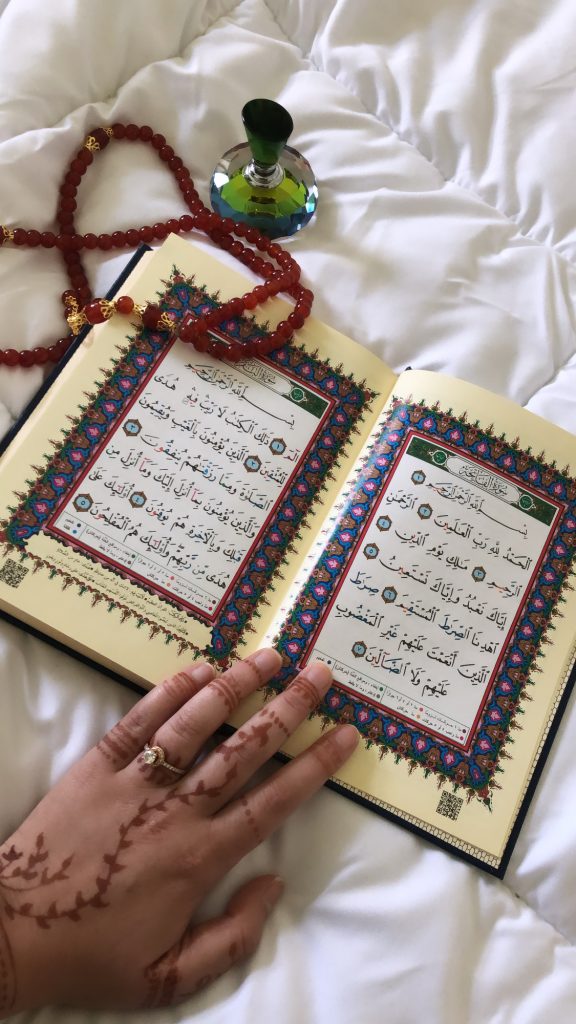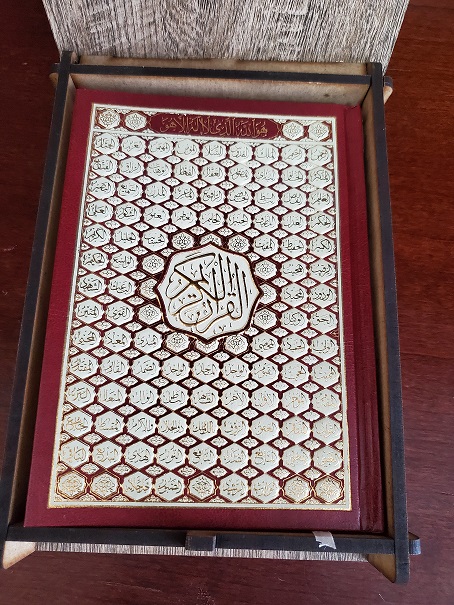My name is Maria and I’m a senior graduating Loyola in few days! I specialize in Cognitive and Behavioral Neuroscience with a minor in Arabic Language and Culture. The Arabic language has always intrigued me since I was a kid. The sound of each letter and the way it is spoken has always sounded like music to my ears. I was immersed in a culture with Arabic roots. Our language was unique to our own community. It had ties with Urdu, Gujarati, Hindi, but most importantly, Arabic. Noting that our religious history flails across the major Arabic-speaking countries, I was determined to one day learn the language. I learned from an early age how to read Arabic because I was taught to pray the Quran, the Holy Book of Islam. Furthermore, our language used letters from the Arabic language as well. I was missing the speaking aspect of it.
Entering college and discovering the Arabic minor allowed me to fulfill my dreams. As I went through the courses, I not only learned the language, but submerged myself into its culture. I was born in Kuwait, a country very small but very prominent in its Gulf Arabic ties. My fascination expanded, and I began to learn the Gulf dialect of Arabic, also known as Khaleeji dialect – which stems from the Kharijites. However, given all these aspects, Arabic helped me most in my own religion. Learning grammar rules and new words, I began to truly grasp a better understand of the Quran. Quranic Arabic is far different than Arabic and it is difficult for anyone to understand it fully, however, I was able to apply my skills from my minor. Additionally, attending events held at my masjid allowed me to understand our duas (prayers) in a more comprehensive fashion. I was able to understand what I was asking from Allah, even at the most basic level. Furthermore, our most important days are observed during Ashara. These are 10 days of mourning for the death of the Prophet’s grandson, Hussain. We use a lot of elegies to convey the sadness of these days of massacres, starvation and thirst. These elegies are typically written in Arabic, and sound beautiful when they are voiced correctly. Every year during this time, I have always listened to the elegies that are written by scholars. These past few years, I have slowly understood each of them as I gained more Arabic skills.
My Arabic minor has truly aided me in personal and academic growth. To understand small meanings of everyday prayers or Quranic lines has brought a different insight into my life. I could not be more amazed by the way this language is carefully constructed.



